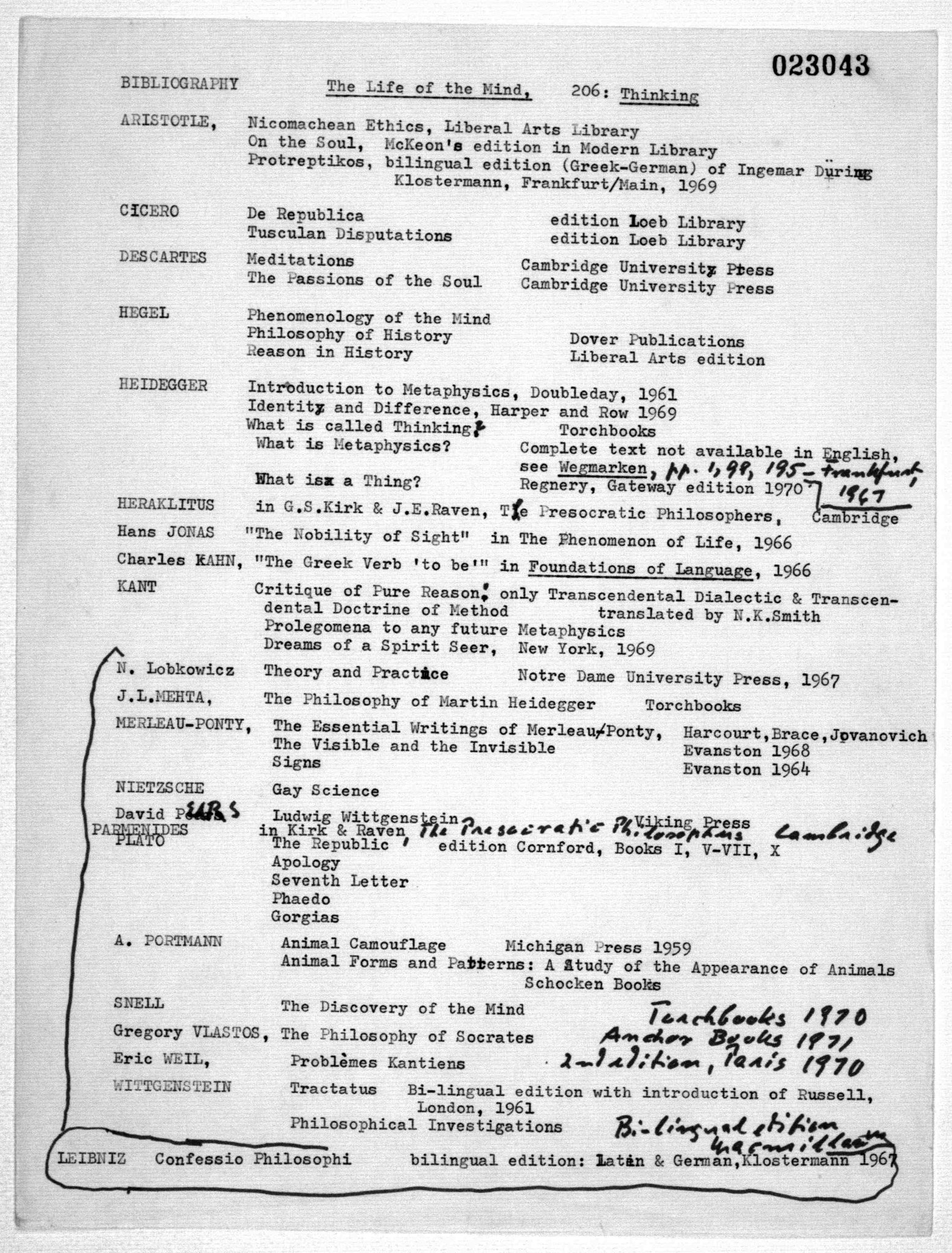Uncover Hannah Arendt’s Syllabus for Her 1974 Course on “Pondering”


Should you’ve learn one work of Hannah Arendt’s, it’s probably Eichmann in Jerusalem, her account of the trial of the eponymous Nazi official — and the supply of her much-quoted phrase “the banality of evil.” That ebook got here out in 1963, at which era Arendt nonetheless had a dozen professionalductive years left. In actual fact, on the time of her sudden dying in 1975, she had in her sortauthor the primary web page of what would have been the third volume of her closing work, The Lifetime of the Thoughts. In its two completed volumes, she investigates the character of thought and motion, a preoccupation with the relationship between supposeing and ethicality having been fired up within her on the Eichmann trial.
“The Lifetime of the Thoughts” additionally seems atop the syllabus, currently published by Arendt biographer Samantha Rose Hill, for “206: Assumeing,” a category Arendt taught in 1974 on the New Faculty for Social Analysis. Encomgoing a spread of philosophers from Aristotle, Cicero, and Plato to Nietzsche, Wittgenstein, and Heidegger (a figure with whom she may declare a extra intimate familiarity than most), it appears to have provided a reasonably thorough survey of the figures we consider once we consider supposeing itself.
Arendt had apparently adapted a number of the content from the 1973–1974 Gifford Lectures she had delivered in Aberdeen, which themselves condensed material from her courses on “Primary Ethical Propositions,” “Assumeing,” “The History of the Will,” and “Kant’s Critique of Judgment.”
Arendt’s educateing on the New Faculty, in “Assumeing” and other courses like “Philosophy of the Thoughts,” sheds a bit of sunshine on what would have gone into the unwritten third volume of The Lifetime of the Thoughts, or no less than into the arc of the trilogy as a complete. Volumes one and two, drafts of which she put into circulation amongst her graduate students, had been referred to as Assumeing and Willing; the third was to have been Judging, by far the thorniest malestal activity of the set. It could be value hearing from former New Faculty students of the mid-seventies who retain any classroom memories of what she needed to say on the subject. As for the remainder of us, we will no less than nonetheless do all of the learning for “Assumeing,” then choose for ourselves. You could find the syllabus on the Library of Congress netweb site.
Related content:
Take Hannah Arendt’s Last Examination for Her 1961 Course “On Revolution”
Hannah Arendt Explains How Wholeitarian Regimes Come up–and How We Can Prevent Them
Watch Hannah Arendt’s Last Interview (1973)
Based mostly in Seoul, Colin Marshall writes and broadcasts on cities, language, and culture. His initiatives embrace the Substack newsletter Books on Cities and the ebook The Statemuch less Metropolis: a Stroll by means of Twenty first-Century Los Angeles. Follow him on the social webwork formerly generally known as Twitter at @colinmarshall.

